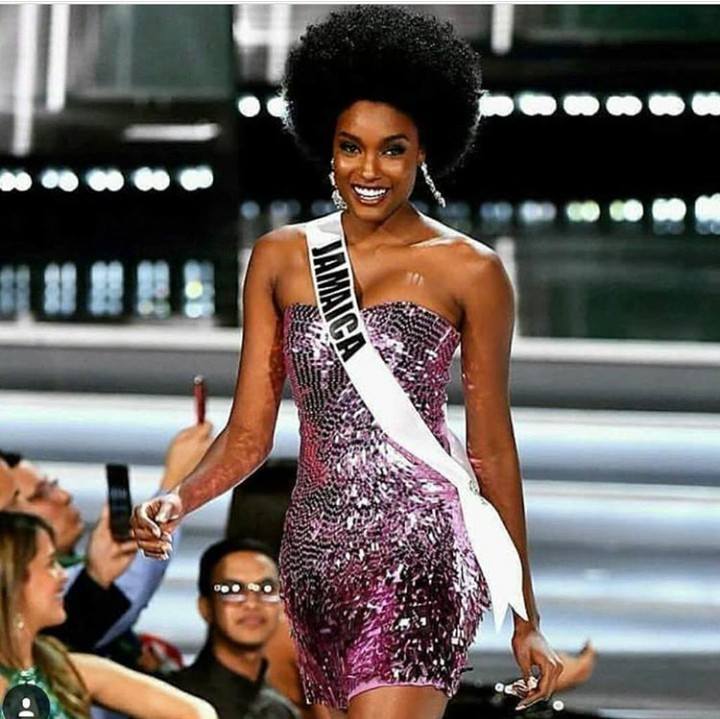Natural beauty Davina Bennett’s third-place finish in this year’s Miss Universe pageant should inspire Jamaicans to use their money to buy stocks and build wealth instead of spending on bleaching compounds and false hair, a local economist has argued.
According to University of the West Indies (UWI) professor of economics and chair of the Jamaica Stock Exchange Market Research Committee, Clairmont Kirton, the economics of natural hair has been documented.
“I have already read reports that Jamaica could save J$3.5 billion in imports if persons were to take the cues from the beautiful and natural Miss Bennett and stop buying bleaching cream and Brazilian hair,” Kirton said at the Market Research Competition hosted by the JSE at Knutsford Court Hotel on November 29.
Professor Kirton has taught business at UWI for 43 years and expressed his personal satisfaction that Bennett has highlighted that black is indeed beautiful. He noted that if the savings from the cessation of skin bleaching and buying false hair could be channelled into more productive activities, such as investing, Bennett’s rise on the world stage could not only promote beauty but wealth creation.
According to Euromonitor International, the market for liquid haircare products in Africa will continue to grow at a five per cent rate between 2013 and 2018. Estimates show that Africa’s dry hair market — weaves, wigs and hair extensions — is currently worth over US$6 billion a year and growing quite rapidly. Studies reveal that black women are willing to spend at least double the amount on hair and beauty products than white women. On a continent where over 40 per cent of the population lives below the poverty line, the business of beauty, especially hair products, is experiencing a significant boom.
Every year, the value of trade in shampoos, relaxers and hair lotions in Nigeria, South Africa and Cameroon is over $1.1 billion. This figure does not even include sales in other 40+ Sub-Saharan countries.
While Kirton made reference to Jamaicans’ preference for Brazilian hair, research has shown that India is one of the biggest players in the human hair industry with exports of up to $400 million every year. With a population of roughly 1.3 billion people, of which just over 600 million are women, India has the capacity to supply human hair at a global level.

As it relates to bleaching creams, Japan is actually the largest market for skin lighteners, according to Global Industry Analysts Inc (GIA), which has announced the release of a comprehensive global report on skin lighteners.
The global market for skin lighteners is projected to reach US$23.0 billion by 2020, driven by the desire among both women and men to have even-tone, light-coloured skin. Skin-whitening products are growing in demand in the global cosmetics industry. The desire for light-coloured and even-toned skin remains the most important factor driving demand for skin-whitening products. In addition to skin lightening cream and lotion for the face, the retail market is inundated with skin-whitening solution for armpits elbows, arms, and feet.
“Imagine all that false hair and bleaching money going to the stock market,” Kirton said to the audience at the Market Research event.
Now in its 14th year, the research competition highlights the analyst that offers the best investment advice based on several judging criteria. Past winners include Steven Gooden of NCB Capital Markets and Johann Heaven of PROVEN Investments.

Great Article, I like to see positive posts also and not just the ray-ray. Not that the ray-ray is a problem, just like the balance.
Good read